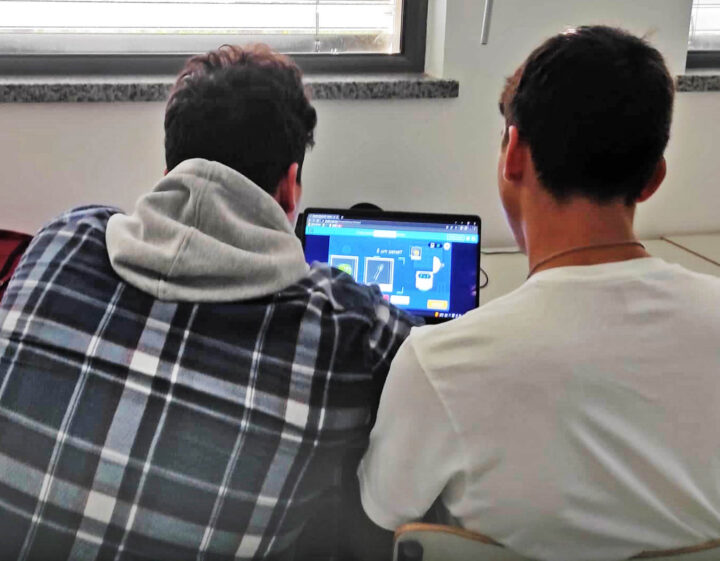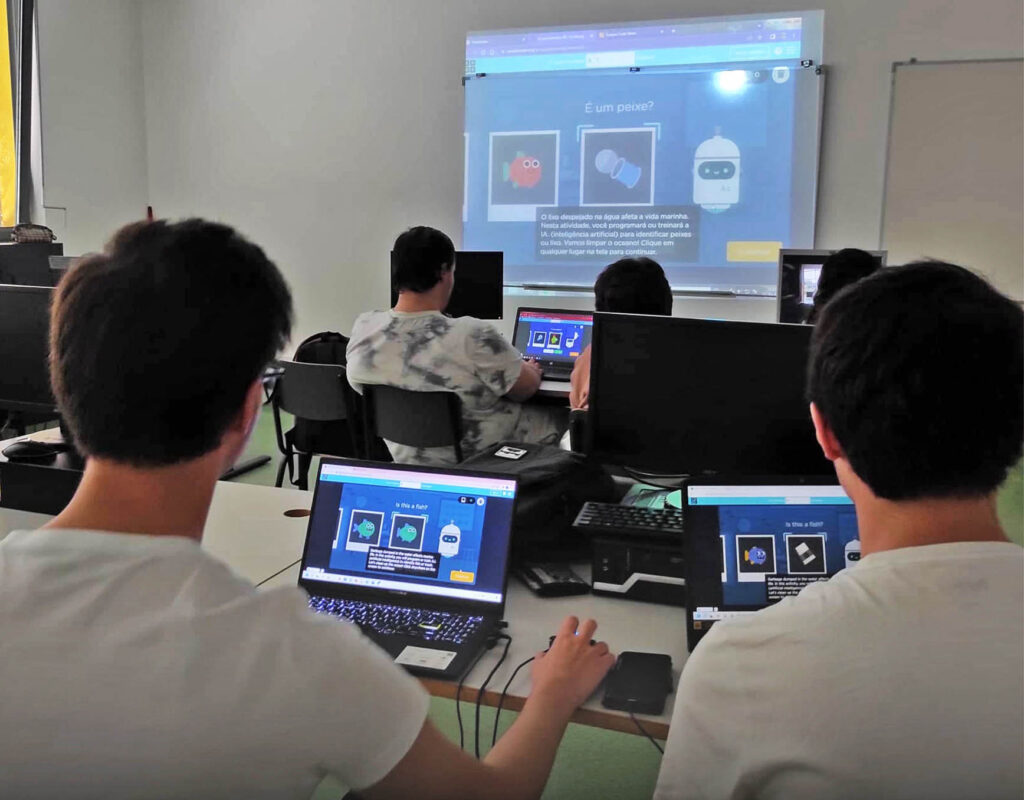Students of the Professional Course in IT Equipment Management, from the Tomás Cabreira School Group, from Faro, participated, in October, in the European Programming Week or “Code Week” involving schools from all over Europe.
This initiative aims to bring programming and digital literacy to everyone in a fun and attractive way.
This year, the programming event promoted students' awareness of the protection of the Ocean, in an action called “AI for Oceans”, demonstrating that computing is much more than lines of code. And so, participating students were able to learn about artificial intelligence (AI) formation data while exploring ethical issues and how AI can be used to solve ocean-focused world problems.
These activities are part of a commitment by the Tomás Cabreira Group of Schools which, together with the University of the Algarve, was part of the Pr'Oceano project led by the Centro Ciência Viva do Algarve, which aims to combine digital innovation with the sustainability of the Ocean.
During these 15 days, the students responded to the various programming challenges with solutions that can be consulted clicking here on the website, where you can also find out more about the event,
Among the activities, “Machine Learning” stood out, for which students were challenged to “teach” machines to detect and recognize patterns in sea water, learning to classify objects as “fish” or “non-fish” with the aim of trying to remove the garbage from the ocean.
In the second part of the activity, students chose their own labels to apply to randomly generated fish images. The generated data were used in a learning model that, after its improvement, should be able to label new images by itself.
But it wasn't just image recognition that the students programmed. They also had the opportunity to program an “mBot” robot, so that it could be controlled via a Bluetooth command, but also so that, thanks to its light and infrared sensors, it could detect the presence of obstacles and avoid them. or even change the color of the LED lights depending on the distance from an obstacle.
At the end of the event, students still had the opportunity to develop Apps for android mobile phones on the App Inventor programming platform.
The project «Pr'Oceano – Protecting the Ocean, why and how?» is supported by Portugal and the European Union, through the CRESC Algarve 2020 program.
It is a strategic bet to communicate science and increase digital literacy and sea literacy among the community and professional education institutions.




















Comments